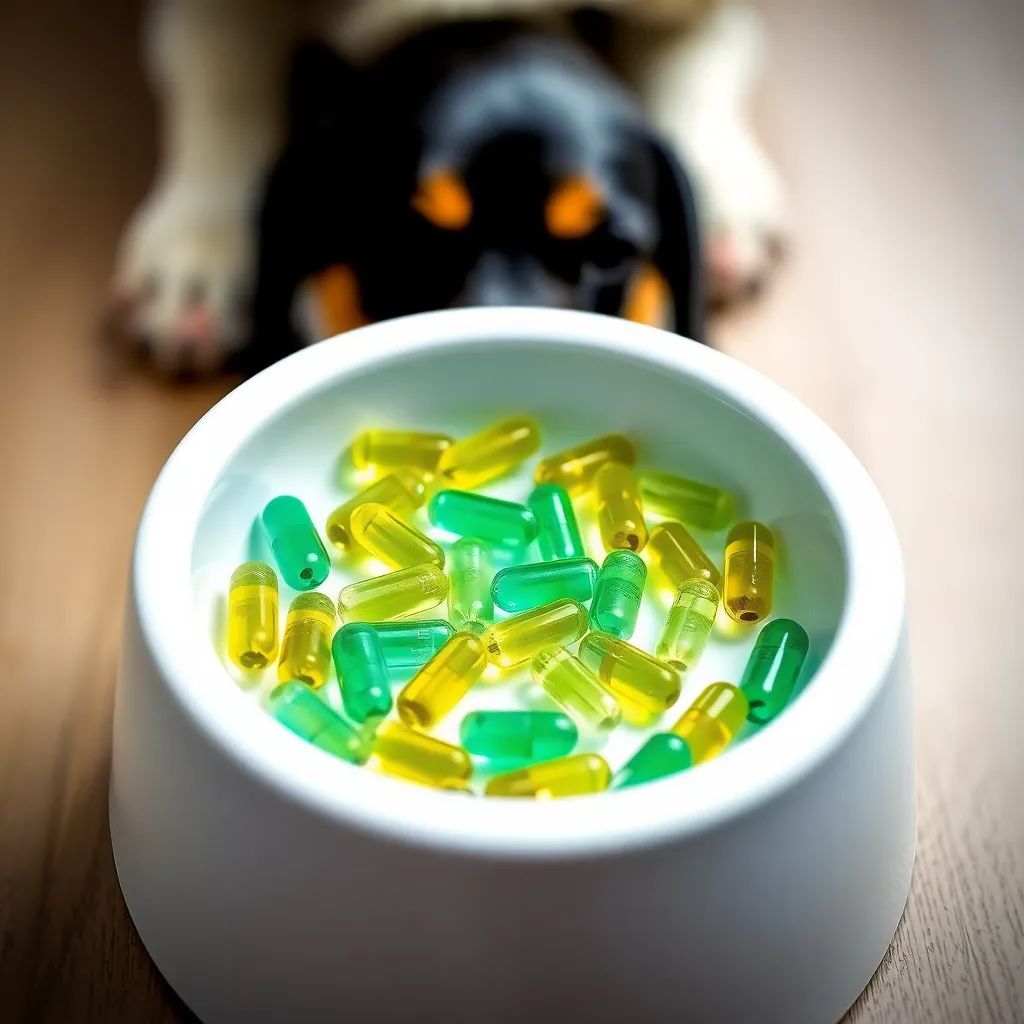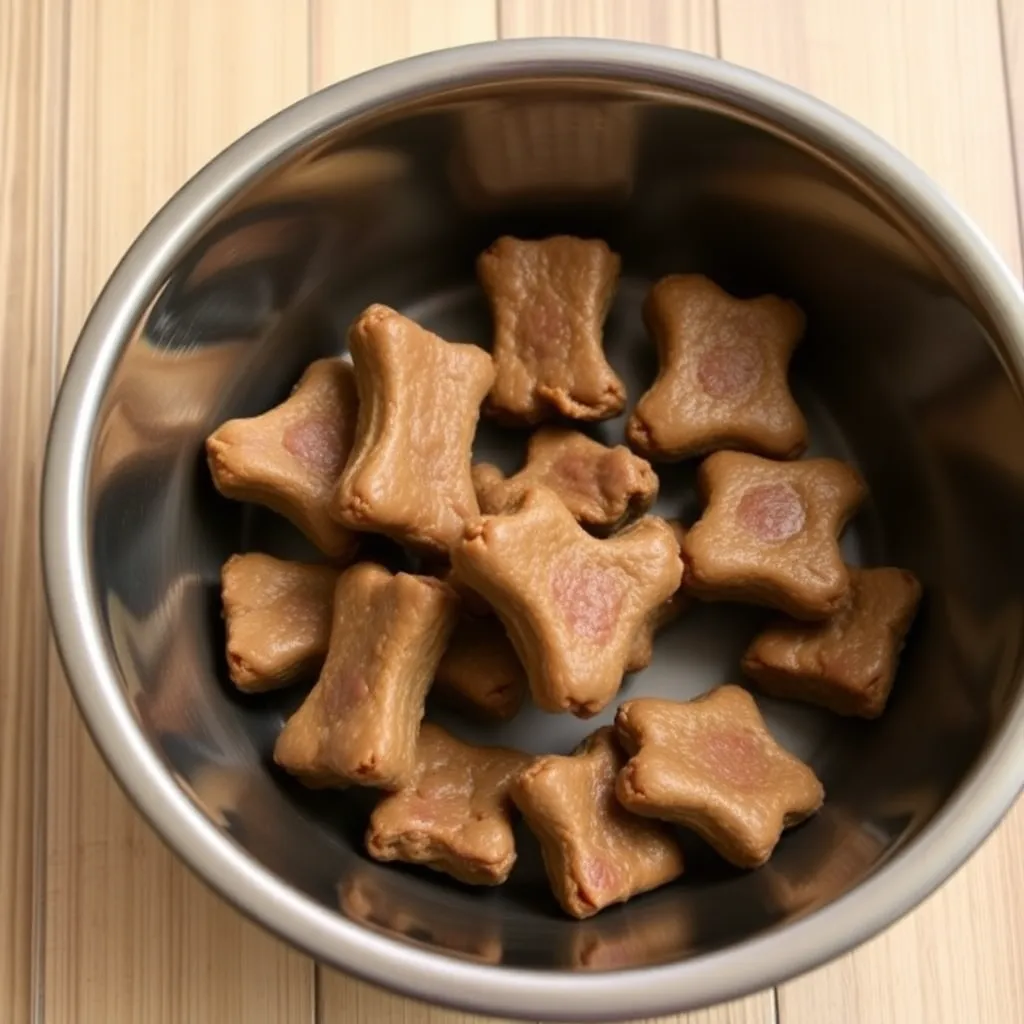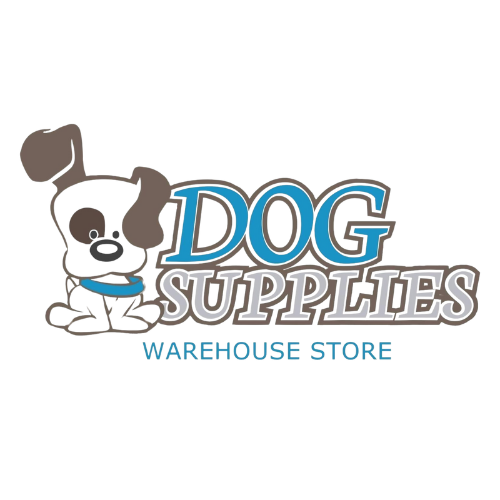Just like humans, dogs require a variety of vitamins and minerals to maintain good health. These nutrients support everything from bone health and immune function to coat shine and energy levels. While most dogs get what they need from their food, certain situations may call for dietary supplements to fill nutritional gaps.
Dietary supplements can play a significant role in enhancing your dog’s diet. They can help address specific health issues, support overall well-being, and ensure that dogs with dietary restrictions or special needs get the nutrients they require.
Common Vitamin Supplements
Vitamin A
- Benefits: Vitamin A is essential for maintaining healthy vision, immune function, and skin health. It helps maintain healthy mucous membranes and promotes good reproductive health. Vitamin A plays a crucial role in cell growth and differentiation, which is important for organ function.
- Why It’s Needed: Older dogs or those with poor coat and skin health may benefit from Vitamin A supplementation to prevent infections and maintain good vision. Vitamin A deficiency can lead to vision problems, skin issues, and a weakened immune system, making dogs more susceptible to infections.
- How to Administer: Vitamin A can be given through cod liver oil, fish oil capsules, or liver-based treats. Always follow your vet’s dosage recommendations to avoid hypervitaminosis A, a condition caused by excessive intake of Vitamin A. Symptoms of toxicity include lethargy, weight loss, and bone pain.

B Vitamins (B1, B2, B6, B12)
- Benefits: B vitamins are crucial for energy metabolism, brain function, and the formation of red blood cells. They also support nerve function and promote healthy skin and coat. Each B vitamin has specific roles, such as:
-
- Vitamin B1 (Thiamine): Essential for carbohydrate metabolism and nerve function.
- Vitamin B2 (Riboflavin): Important for energy production and skin health.
- Vitamin B6 (Pyridoxine): Involved in amino acid metabolism and neurotransmitter synthesis.
- Vitamin B12 (Cobalamin): Necessary for red blood cell formation and DNA synthesis.
- Why It’s Needed: Dogs under stress, with poor appetite, or older dogs might need B vitamins to boost energy levels and overall vitality. Deficiency in B vitamins can lead to a range of issues, including anemia, neurological disorders, and poor growth.
- How to Administer: Brewers yeast supplements, vitamin B complex tablets, and certain fortified dog foods are good sources. These vitamins are water-soluble, so the risk of toxicity is lower, but it’s still essential to stick to recommended doses. Excess intake is typically excreted through urine.
Vitamin C
- Benefits: Vitamin C acts as an antioxidant, protecting cells from damage. It supports the immune system, reduces inflammation, and aids in collagen production, which is important for joint health. Vitamin C also plays a role in the synthesis of neurotransmitters and the metabolism of certain amino acids.
- Why It’s Needed: Dogs with joint issues, recovering from illness, or under stress can benefit from the anti-inflammatory and immune-boosting properties of Vitamin C. While dogs produce Vitamin C naturally in their livers, additional supplementation can be beneficial in times of increased physical stress or illness.
- How to Administer: Natural sources like fresh fruits (oranges, strawberries) can be given in moderation. Specific dog supplements designed for joint health also often include Vitamin C. Always consult with your vet before adding Vitamin C to your dog’s diet as dogs produce it naturally.

Vitamin D
- Benefits: Essential for calcium and phosphorus absorption, vitamin D is vital for bone and teeth health. It also supports the immune system and muscular function. Vitamin D helps regulate the balance of minerals in the body, ensuring proper bone mineralization and growth.
- Why It’s Needed: Dogs with limited sun exposure or on homemade diets might need supplementation to maintain strong bones and teeth. Deficiency in Vitamin D can lead to rickets in puppies, characterized by weak and deformed bones, and osteomalacia in adults, leading to soft and brittle bones.
- How to Administer: Fish oil capsules, fortified dog foods, and specific vitamin D supplements for pets can be used. Over-supplementation can lead to toxicity, so dosage guidance from a vet is crucial. Symptoms of Vitamin D toxicity include vomiting, loss of appetite, increased thirst, and kidney failure.
Vitamin E
- Benefits: Vitamin E is an antioxidant that helps protect cells from oxidative damage. It supports immune function, skin health, and cardiovascular health. Vitamin E is also involved in cell function and fat metabolism, playing a protective role in preventing oxidative stress in the body.
- Why It’s Needed: Dogs with dry skin, a dull coat, or older dogs might benefit from its antioxidant properties to maintain healthy skin and immune function. Vitamin E deficiency can lead to muscle weakness, reproductive issues, and vision problems.
- How to Administer: Wheat germ oil, fish oil capsules, and specific vitamin E supplements for dogs are effective sources. Ensure balanced intake as excess Vitamin E can interfere with blood clotting. Consult with your vet for the correct dosage.

Common Mineral Supplements Benefits
Calcium
- Benefits: Essential for bone health, muscle function, and nerve transmission. Calcium supports growth and development in puppies and helps maintain bone density in older dogs. It also plays a critical role in blood clotting and enzymatic activities.
- Why It’s Needed: Growing puppies, lactating females, and older dogs with bone health issues may need extra calcium to support growth and maintain bone density. Calcium deficiency can lead to skeletal abnormalities, muscle spasms, and impaired nerve function.
- How to Administer: Bone meal powder, calcium tablets, and fortified dog foods are common sources. It’s important to balance calcium with phosphorus and avoid excessive amounts to prevent health issues such as hypercalcemia, which can lead to kidney stones and impaired heart function.
Iron
- Benefits: Iron is vital for the formation of hemoglobin, which carries oxygen in the blood. It supports overall energy levels and immune function. Iron is also crucial for various enzymatic processes and overall cellular function.
- Why It’s Needed: Dogs with chronic fatigue, pale gums, or those diagnosed with anemia can benefit from iron supplements to boost energy and immune function. Iron deficiency can result in anemia, leading to weakness, lethargy, and decreased immune response.
- How to Administer: Liver treats, iron supplements designed for pets, and iron-fortified dog foods are effective. Excessive iron can be toxic, so follow veterinary advice for proper dosage. Symptoms of iron toxicity include vomiting, diarrhea, and abdominal pain.

Zinc
- Benefits: Zinc supports immune function, skin health, and wound healing. It also plays a role in thyroid function and metabolism. Zinc is essential for enzyme function and protein synthesis, contributing to overall growth and development.
- Why It’s Needed: Dogs with skin issues, slow healing wounds, or metabolic problems might need zinc to improve skin health and boost their immune system. Zinc deficiency can lead to skin lesions, hair loss, and impaired immune function.
- How to Administer: Zinc tablets, certain fish-based dog foods, and zinc-fortified dog treats are useful. Balance is crucial, as too much zinc can cause copper deficiency and lead to anemia and immune system dysfunction.
Selecting the Right Supplement
When choosing supplements, it’s crucial to select high-quality products from reputable manufacturers. Consult with your veterinarian to determine your dog’s specific needs and the appropriate dosage. Consider factors such as age, breed, health status, and dietary restrictions.
Introduce supplements gradually to monitor for any adverse reactions. Mix them into your dog’s regular food or offer them as treats. Ensure a balanced approach to prevent over-supplementation, which can be harmful.
Vitamin and mineral supplements can significantly enhance your dog’s diet, promoting optimal health and vitality. By understanding the benefits of common supplements and selecting the right products, you can ensure your dog receives the nutrients they need for a healthy, happy life

After 5 years in a high pace business management role, I partnered with an e-commerce developer to start building Dog Supplies Warehouse.
Our number one goal is to make sure all products are managed and delivered to our customers door fast and accurately.
